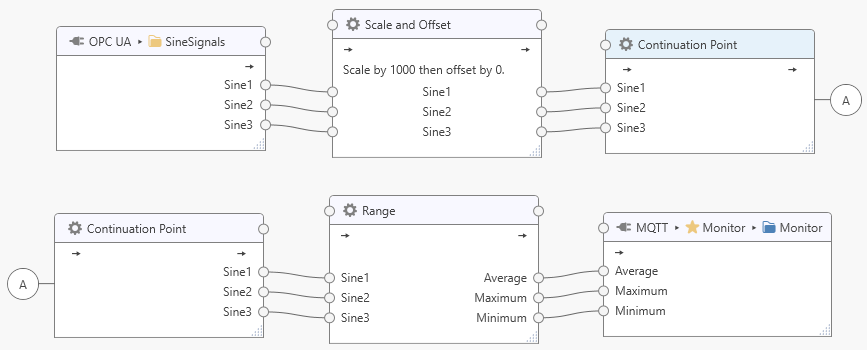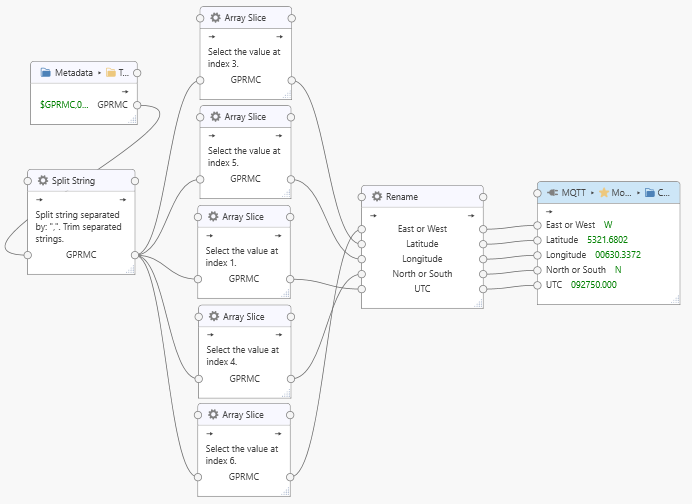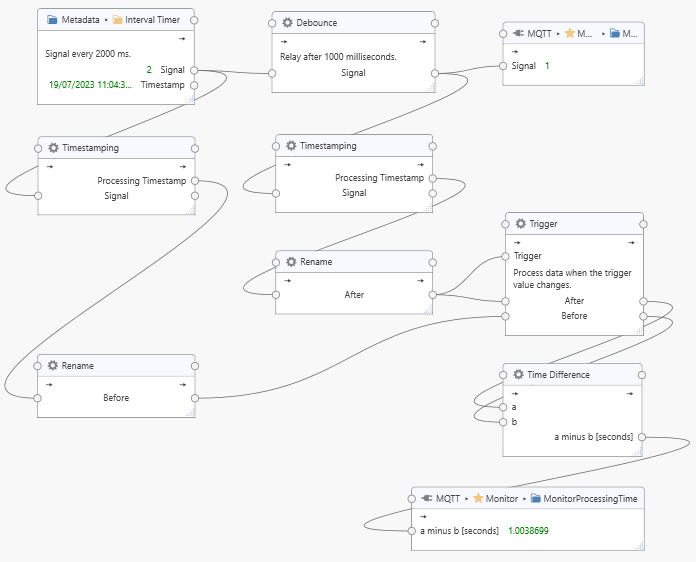Dataristix™ New Processors
In its latest release, Dataristix adds a range of new processors for no-code data processing. These include processors "Continuation Point", "Split String", "Trim String", "Time Difference", "Timestamping", "JSON Value Properties Encoder", and "Value Properties Decoder".
Use "Continuation Point" processors to arrange more complex tasks into visually separate lines of data processing.

The "Split String" processor splits any string input into an array of strings, based on a configured separator. Use the "Split String" processor in combination with the "Array Slice" processor to pick individual elements from the resulting string array.

While the "Split String" processor has a built-in option to trim the resulting, separated strings, the "Trim String" processor can perform this function elsewhere, with the added option to trim strings only at the end or the start of the string.
The "Timestamping" and "Time Difference" processors may be used within a task pipeline to drive logic or to measure performance. The "Timestamping" processor adds a timestamp when values pass through, and the "Time Difference" processor calculates the time difference between two timestamps in seconds (including fractional part).

The "JSON Value Properties Encoder" processor encodes value properties generated at the source of data into a JSON payload. Value properties consist of a source timestamp, a status code (aligned with the OPC UA definition of status codes) and the actual value.

Use the "Value Properties Decoder" processor to process individual value properties. Properties may be used to drive logic or, for example, to pass source timestamps and status values to connectors that do not have options to handle these internally.

